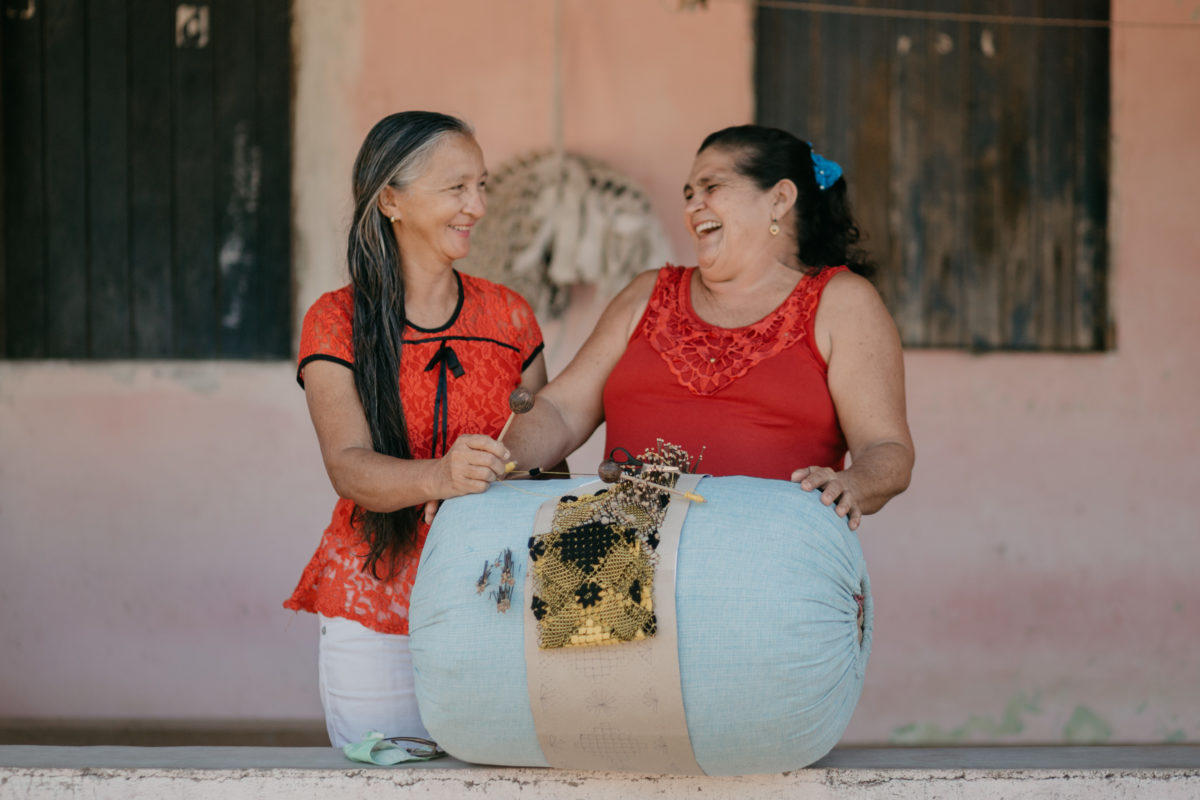
Olê Rendeiras Project - Rescue of bobbin lace culture
As you pass through the streets of Trairi, on the west coast of Ceará, it’s easy to see a craftswoman with her pillow, skillfully weaving bobbin lace. This tradition began in the countryside, with the search for rounded seeds and thorns for the manufacture of the fundamental instrument for this type of craft: the bobbin. It was brought to the northeast of Brazil by Portuguese women in the colonial period and remained alive by more than 5000 women from Ceará, who pass on knowledge from generation to generation.
The learning process takes place as young girls watched their mothers work on the pillow, and in between work they risked copying them. Many learned that way. This observational teaching takes time, and for these women to continue earning income, as part of their daily lives and livelihoods, encouragement is needed.
The reality of about 150 of these women who live in communities in the region was transformed with the arrival of the Olê Rendeiras Project, in 2019. An initiative by Qair, in partnership with Catarina Mina, a brand already known for working with conscious consumption and the sustainable economy development in the State.
“Olê Rendeiras is a project aimed at valuing bobbin lace, to rethink the ties that involve this art, strengthen culture and move the local economy in a sustainable way. The action consists of promoting workshops, conversation circles and exchange of experiences to enable the knowledge and necessary tools, such as financial resources, for the development of the lacemakers’ work, in periodic meetings.”
The bobbin lacemakers launched, in 2020, the first exclusive collection of the project, which was a sales success and has about 15 models of clothing, available for ordering through Catarina Mina’s website: https://www.catarinamina.com/pop-up-ole/
The project continues and in 2021 it will propose, in partnership with the lacemakers, the creation of an association, which will aim to give autonomy and self-sufficiency to the artisans from Trairi.
In parallel, Qair carries out several other social and environmental responsibility projects in the communities where it maintains its projects. Always looking to turn dreams into reality, causing a positive impact wherever it goes.